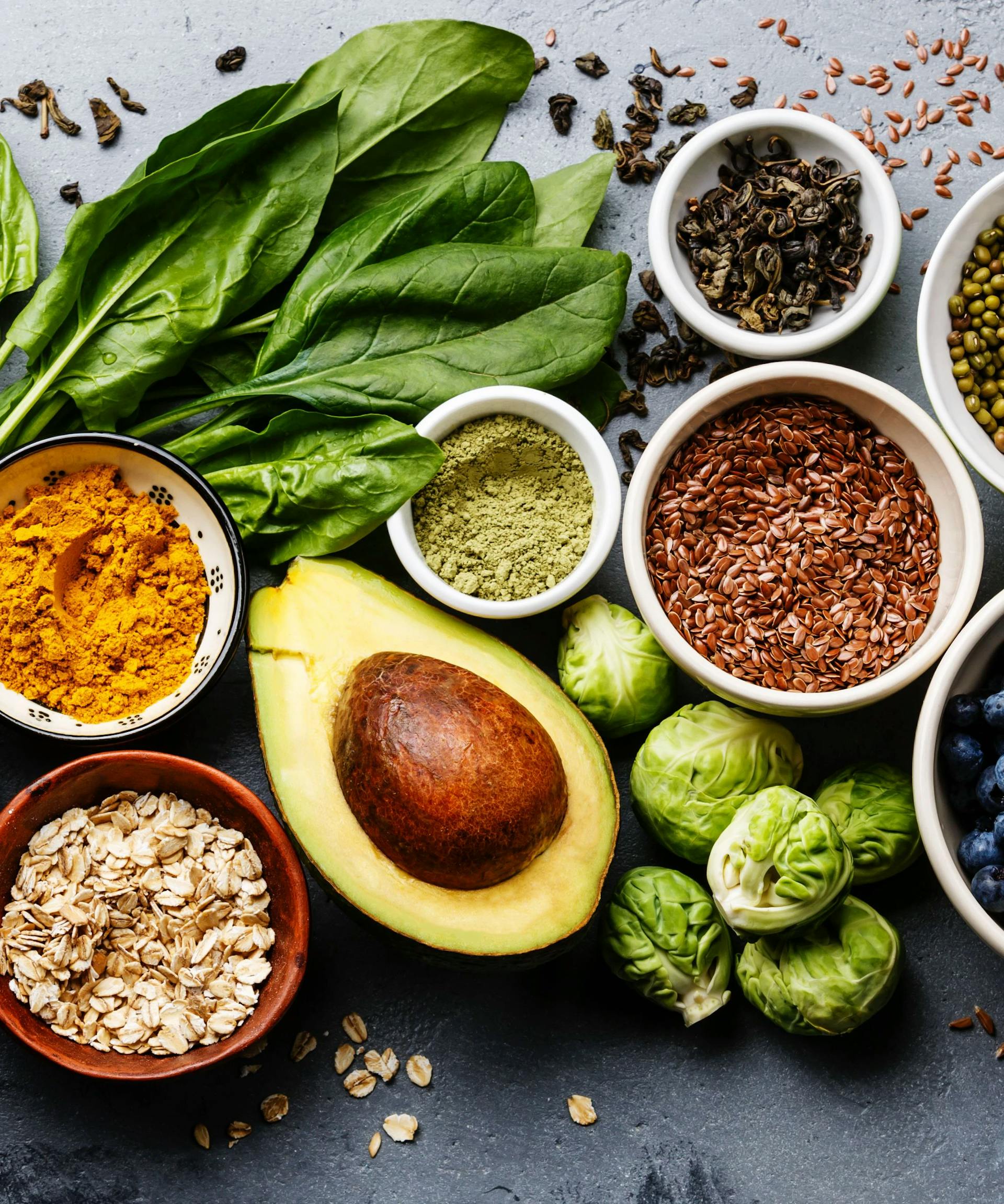11 Foods That Will Help You Fight Bloating
Feeling bloated is never a good feeling. You probably want a solution and quick. Well, we have one for you, and it doesn't include taking Aleve or Midol! Whether it’s digestive issues or period bloat, you can help yourself and your gut by eating nature’s medicine.

More people suffer from digestion disorders and gastrointestinal problems than ever before. It seems that the majority of people we know struggle with conditions like IBS, Crohn’s disease, chronic indigestion, constipation, colitis, and the list goes on. While there are many reasons why bloating happens and multiple culprits to blame, let's focus on learning how to combat these issues naturally and incorporating gentle yet effective remedies, instead of being dependent on over-the-counter medication, which aren't good for long-term health.
Did you know that stress causes bloating as well? And it can worsen digestive disorders. Harvard studies show the gut is called the second brain for a reason since the two are so closely connected. Our enteric nervous system (which is located in our gut and helps us digest food) often feels emotional distress and sends signals to the brain when it senses something is wrong.
Bloating is also a common factor of the menstrual phase. But period bloat doesn’t have to happen, or at least not on a big scale. Many women feel so bloated they look like they’re pregnant during their periods, especially if they struggle with endometriosis and PCOS. This is not normal, and you don't have to feel this way. Menstruating should not feel like you have a balloon in your stomach. Even if your hormones need some long-term help to rebalance, you can take some simple, natural remedies that at least help with the bloating in the moment.
Foods To Avoid
When you’re feeling bloated, stay away from foods that contain gluten, dairy, acid, and high amounts of fiber. These foods can have inflammatory effects, including indigestion and gas, that worsen the bloat. These foods are often difficult to digest and may be better avoided altogether for many people.
Other foods you should limit include beans (surprise?) and lentils/legumes; wheat and all gluten-containing grains including barley and rye; all dairy (organic yogurt has good bacteria, but wait to consume until after you remedy the bloating); any and all carbonated drinks because of the high acid content (skip the ginger ale, even the Zevia); onions and cruciferous veggies (that obsessive cauliflower fad didn’t exactly boost premium digestion).

11 Foods To Prioritize To Reduce Bloating
To remedy bloating, seek out foods and herbs that are soothing, anti-inflammatory, high in potassium and antioxidants (good for hormones and menstrual bloat), and easy to digest, because intestinal inflammation always has to do with digestion and gut bacteria. These foods are always great for your immune system and hormones, as well as your gut bacteria and intestinal health.
Fennel: The seeds are traditionally chewed after meals in India as a digestive aid. Fennel is one of the best herbal foods you can take for an upset and swollen stomach.
Ginger: Super calming for the bloated stomach, this root is anti-inflammatory and warming.
Turmeric: Research shows this spice root is very beneficial for inflammation, circulation, and digestion.
Lemons: These goodies are anti-inflammatory and contain lots of antioxidants as well as enzymes to help improve digestion and intestinal circulation.
Peppermint. Although you can eat the mint leaves, this herb is best taken in tea form. Warm tea helps soothe a bloated tummy better than cold/iced tea.
Cucumber: Cucumbers are made up of around 95% water and are great for relieving bloating. Eating foods with a high water content will help reduce inflammation and help you stay hydrated.
Bananas: High in potassium and gentle on the stomach, bananas help improve digestion and soothe gut inflammation and bloating. Chew slowly and take small bites.
Avocados: Also high in potassium and gentle on digestion, these can help ease your tummy.
Watermelon: The saving fruit of bloated period stomachs! The high water content of this fruit helps flush out any salt or toxins your body may be holding on to, and it helps circulation to alleviate menstrual swelling and moves any digestion blockage.

Applesauce: High in the soluble fiber pectin and water content, applesauce helps treat constipation and bloating. Make sure it’s unsweetened and organic to avoid added sugars and processed pesticides that debilitate the gut biome.
Berries: Last but not least, berries have some of the lowest natural sugar amounts in the fruit family, are hydrating, and are high in Vitamin C and antioxidants (which you probably already knew) which help reduce bloating. They also have good, gentle soluble fiber, which, paired with their high water content, makes them easy to digest and helps move things along while decreasing bloating.
Remember, even though natural foods are good for you, there is such thing as too much of a good thing. It's important to be mindful of your portions, even with fruits and veggies. Overeating is the No. 1 cause of bloating, which of course includes eating foods you struggle with digesting, as well as easily digestible foods which will just make your bloating worse.
Closing Thoughts
Many people are completely oblivious to how the food they eat affects their stomachs, including stomach aches, constipation, gas, and bloating. But these symptoms can be countered with good nutrition. Keep an eye on your daily food routines, use mindful portion control, and be aware of any foods that specifically result in bloating so that you can know how your diet is impacting your system.
Love Evie? Sign up for our newsletter and get curated content weekly!